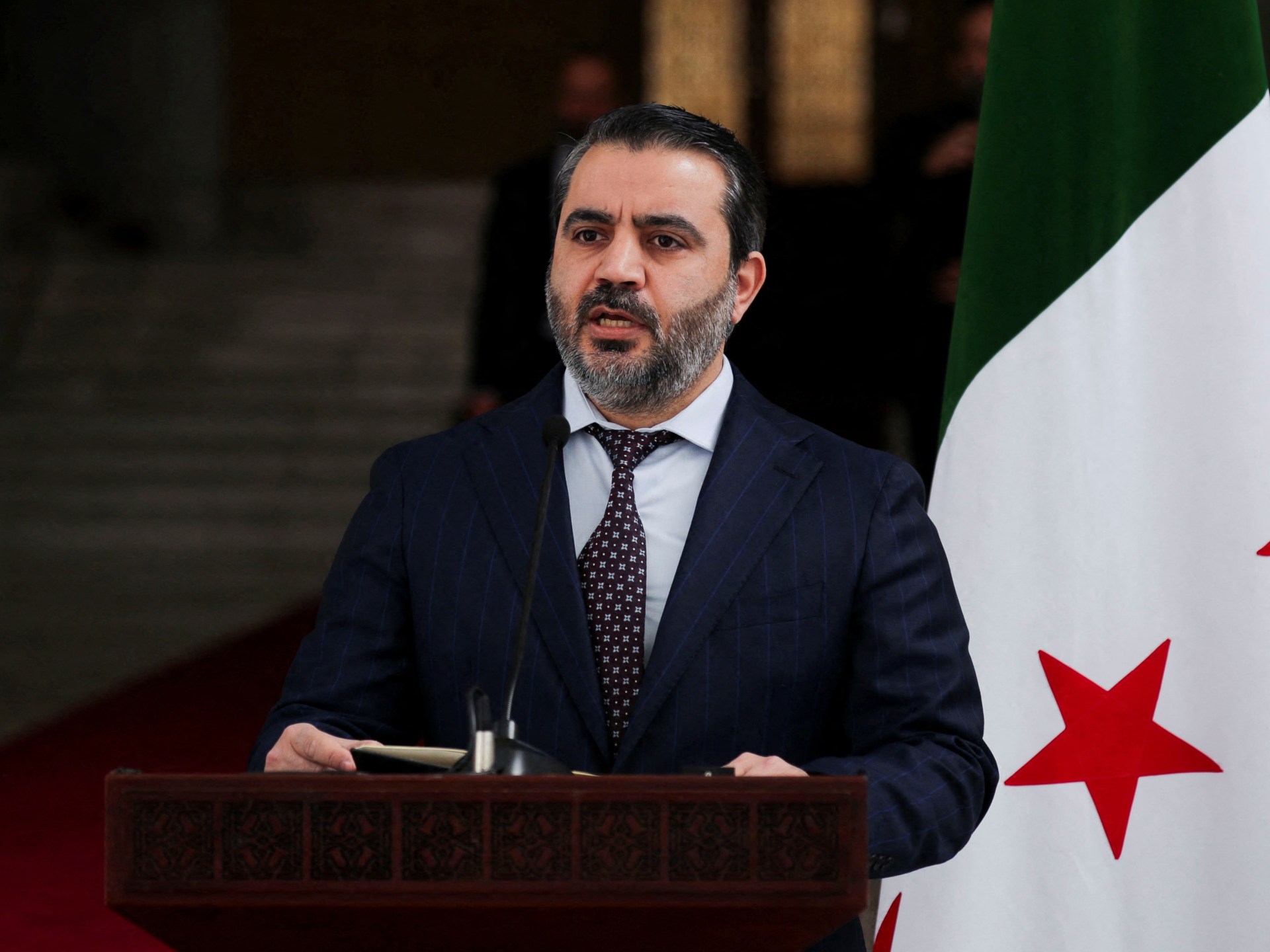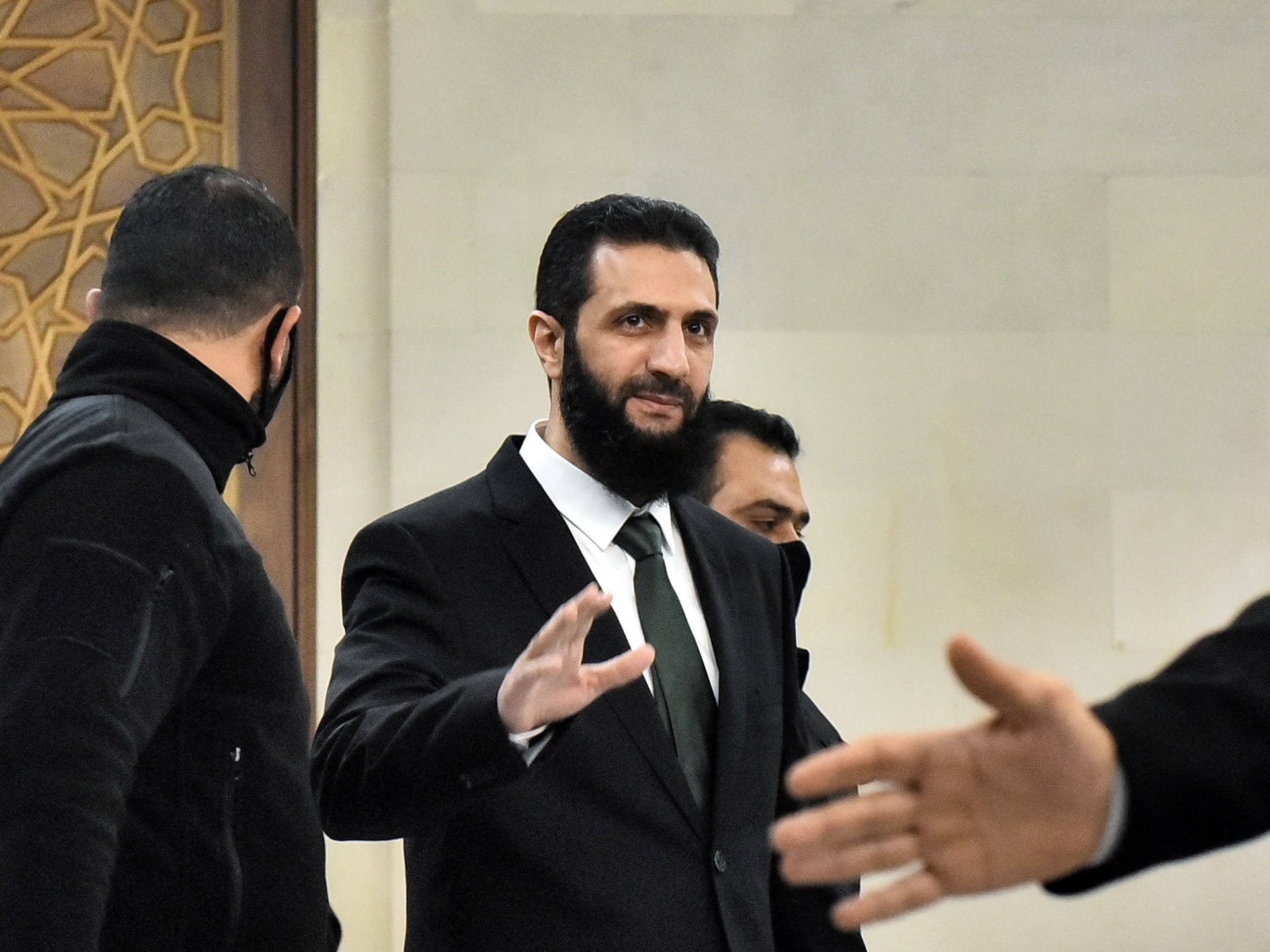‘Ready to engage’: Syria’s foreign minister calls for lifting of sanctions
 01 January 2025
01 January 2025


Syria’s new Foreign Minister Asaad Hassan al-Shibani has spoken exclusively to Al Jazeera about the new administration’s goals, orientation, and progress so far.
Speaking to Al Jazeera’s Hashem Ahelbarra on New Year’s Day, a little more than three weeks after longtime Syrian ruler Bashar al-Assad was ousted, al-Shibani was eager to outline progress so far.
The interim administration – led by the commander-in-chief, Ahmed al-Sharaa – is expected to hold talks on January 5 to discuss Syria’s future agenda at a crucial National Dialogue Conference, which will clarify a great deal about the path forward.
Sanctions no longer help Syrian people
After a brutal wave of repression of protesters in 2011 that led to Syria spiralling into war, Australia, Canada, the European Union, Switzerland and the United States imposed sanctions on the al-Assad regime.
The aim at the time, al-Shibani said, was to send a message of support to the Syrian people who were suffering under the repressive regime.
But now, he argued, the main reason for them was gone; the thousands of detainees that al-Assad kept in “human slaughterhouses” around the country were free, and the country was working to repair the damage.
Advertisement
As such, “continuous enforcement [of sanctions] has become meaningless and ineffective”, al-Shibani noted.
The US had designated Hayat Tahrir al-Sham (HTS) – the group led by al-Sharaa which spearheaded the offensive against al-Assad – a terrorist organisation in 2018, and placed a $10m reward on him, which could prove a complication to lifting the sanctions.
However, Barbara Leaf, the US assistant secretary of state for near eastern affairs, and other officials visited Damascus on December 20, after which she announced dropping the bounty and signalled Washington’s willingness to engage.
“We fully support a Syrian-led and Syrian-owned political process that results in an inclusive and representative government which respects the rights of all Syrians, including women, and Syria’s diverse ethnic and religious communities,” Leaf said.
Engaging with the world
One of the new administration’s key priorities is to remain open to engaging with everyone and rebuilding relations with the outside world, al-Shibani said.
He is due to visit Saudi Arabia in the coming days during which, Al Jazeera’s Hashem Ahelbarra said from Damascus, the top diplomat may be able to make progress on Syria’s readmission to the Arab League.
Relations with the US, he pointed out, would likely be crucial, but it remains to be seen how they would develop.
“Syria today is open to all and ready to engage with all parties, although certainly the development of this administration would likely depend on the US side.
Advertisement
“We’re ready to enhance this relation as long as the new US administration shows willingness,” Ahelbarra said, referencing the incoming administration of President-elect Donald Trump.
Addressing concerns raised frequently by non-Syrians about the potential for violence against minorities in Syria, he acknowledged that they had been mentioned in discussions with the US.
However, he clarified, the new administration is determined to treat everyone as Syrians, not as groups of minorities.
“[A]n American focus on these issues, might inadvertently reinforce divisions within Syrian society and contribute to its fragmentation,” he said.
Muhanad Seloom of the Doha Institute of Graduate Studies noted that the new Syrian administration has come a long way in terms of appealing to the international community.
“For the Syrian administration … I think they’ve come a long way [and] also shown restraint in terms of protecting the ethnic groups in Syria by not allowing anyone to take the law into their own hands,” he told Al Jazeera.
Al Jazeera’s Ahelbarra added that as the happiness of al-Assad’s fall wears off, Syrians will start to look to their new caretaker government for support.
“Today is January 1, 2025, and from today, and in the upcoming days, people will start asking more questions about the challenges ahead.
“This new administration promised to increase government salaries by 400 percent. But when they took over the central bank, the coffers were empty … it was all embezzled by the Assad regime,” he noted.
Advertisement
Related News

Two Gaza Civil Defence workers killed as Israel launches multiple strikes

Israeli forces raid occupied West Bank as clashes continue in Jenin

One in six children live in conflict zones this year: UNICEF
